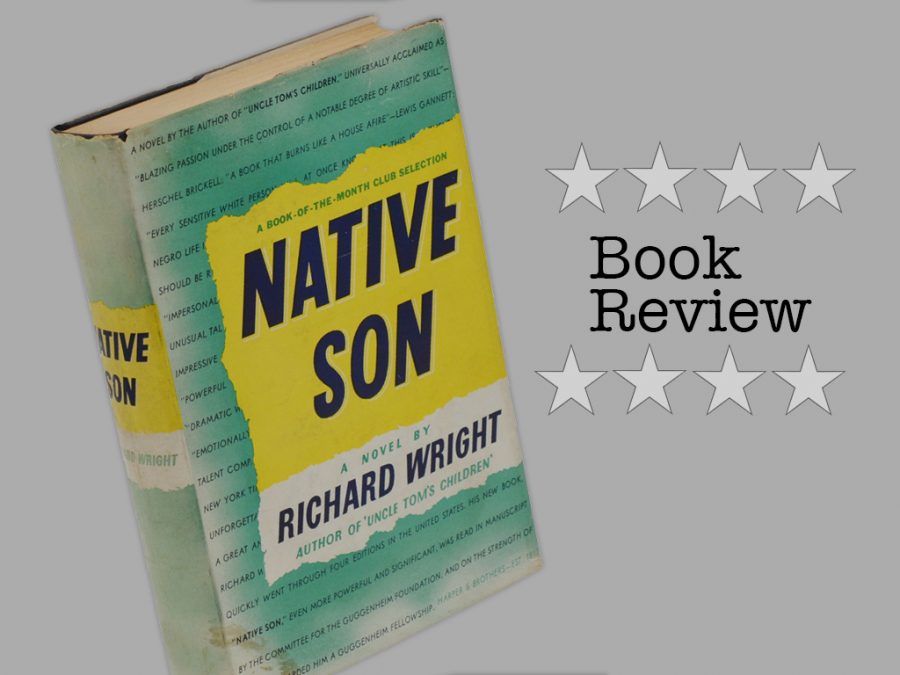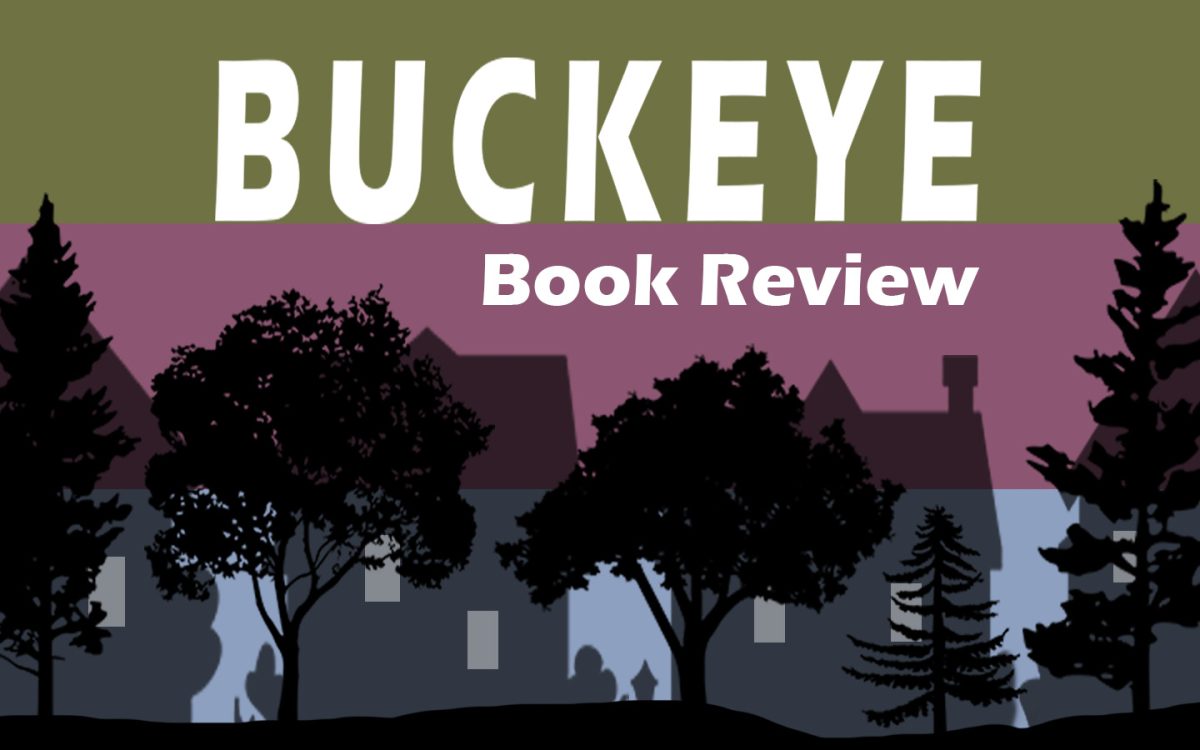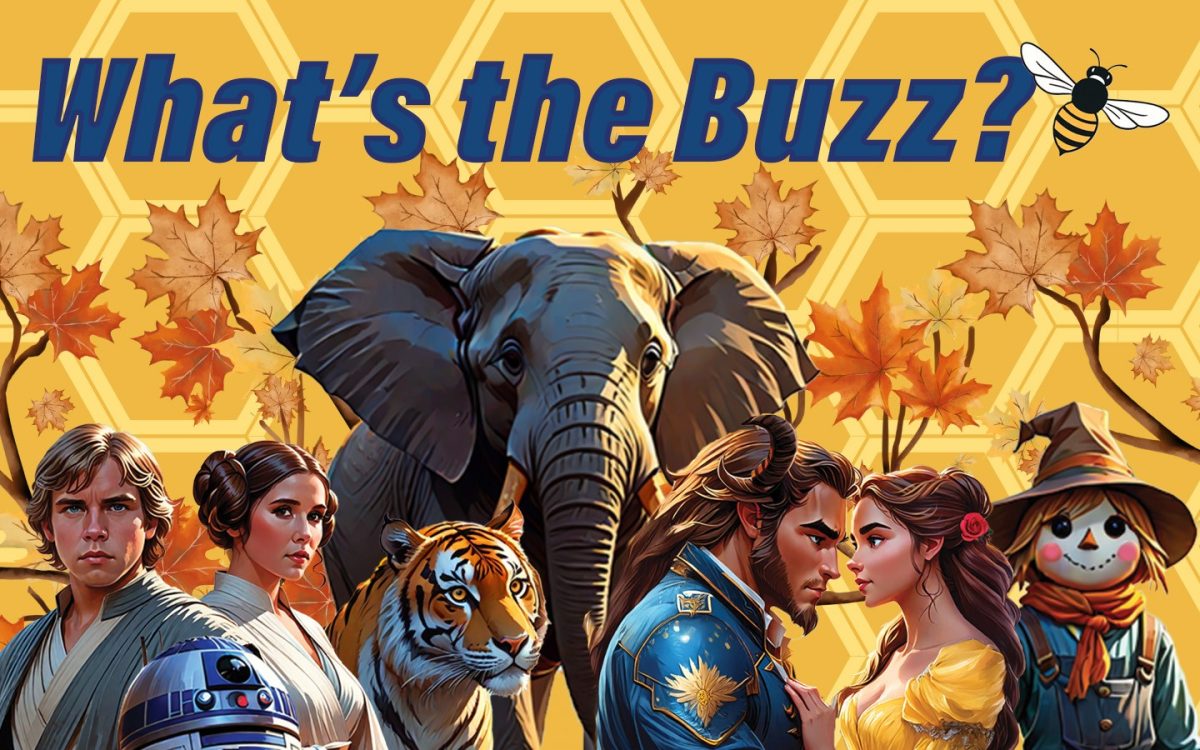80 Years ago in America
Richard Wright novel “Native Son” unenjoyable for all the right reasons
September 24, 2021
Rating: 9/10
The last year-and-a-half have been a time of protest and solidarity in the name of justice for racial disparity. Many know this has been a problem long before even the original colonies ran ashore; many also know of racism’s more notorious footnotes – slavery, emancipation, the Civil Rights movement with its laws and assassinations that came forthwith. While the history of racism’s blood and law is well-known, we don’t often learn of the history of its dialogue; one such historical bookmark is Native Son, a book released in 1940 about the fear that is instilled by systematic racism, and the following consequences of that fear.
The story stars Bigger Thomas as the main character; he’s a young black man 20 years of age living with his mother, brother and sister in a single-room apartment in the South of Chicago. He’s known as a bit of a troublemaker, picking fights and stealing; deep down he expects himself to get arrested, or even executed, for one thing or another. Against his recalcitrant personality, he’s forced to take a new job he’s not too keen on since he’s the only member of his family old and able enough to work; he begrudgingly goes to work as a chauffeur for an affluent white family who think themselves charitable for hiring him. Unfortunately, not even a full 24 hours into his new job goes by before things go horribly wrong; in a moment of sheer panic he ends up accidentally murdering a young white woman. From that moment onward, he follows the anger and fear within himself to try to save his skin.
For a story published in 1940, the images depicted therein are surprisingly sharp; graphic murder, sexual assault, and portrayals of several prejudices present during the time warrant that this book is not for those in pursuit of fun or amusement. Native Son is neither of these things; it may be a work of fiction, but it was heavily inspired by the experiences of its late author Richard Wright.
Wright was a Black man himself, growing up abused, in many homes and with sparse schooling; regardless of all of this he came to be an autodidact of sorts – someone who’s educated themselves independently, without a teacher or formal education.
Of the many things Wright had experienced, a few key things made their way into his works; violence, politics and religion. Violence, because of how much he experienced, and not only the physical sort, but verbal and rhetorical as well, kinds that may not leave bruises but nevertheless takes power from the individual it’s aimed at, the kind that Wright was subjected to since birth. Politics, because of his brief affair with the Communist Party. Religion, because of his abusive family forcing him to pray so that he might “build a relationship with god.” Native Son has a bit of all of these things.
Native Son is not meant to entertain – and it shouldn’t; the protagonist is despicable, most if not all of the characters are shallow, the pacing is often sluggish and there is no happy ending (or happy middle or beginning, for that matter). This is a book about the forces at play in 1940s America; how the prejudices of a society’s institution can bring to life the very demons they fabricated in the first place.
Neither Bigger nor the book apologizes for the murders he commits, and the story puts its entire chest behind what it has to say; the United States may be beyond redemption, regardless of whether or not it wants redemption in the first place, and attempts to stamp out resistance to the ever-present venom of history’s transgressions will only fuel an oncoming storm.
That being said, Native Son still has its quirks. The story is very cynical, bloody and bleak; Bigger Thomas has been criticized as a character who pushes the angry and violent Black man stereotype; and while the book is over 350 pages long it is broken up into only about three chapters, which affects the pacing.
Overall, Native son is an insightful – if dreadful – read for those interested in the dialogue of racism in America.









